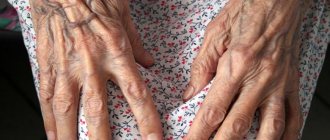The key difference between guardianship and a foster family is that an agreement is concluded with the foster parent, which reflects the procedure for placing the child in foster care, including the conditions for calculating wages. Guardianship is appointed by order of the local administration. There is no salary for guardianship; guardians are paid child benefits.
IMPORTANT!
Foster care and adoption are completely different concepts. Upon adoption, parents receive a full range of rights and responsibilities, equal to those of blood. A foster family (hereinafter referred to as FS) is one of the types of guardianship; the rights and obligations are determined by the terms of the agreement on the transfer of a child to a foster family.
Wage
The guardian's salary is a monthly payment for the adopted child. The amount is determined by the terms of the foster family agreement (hereinafter referred to as FSA). And if a citizen is unemployed, then the period of raising an adopted child is counted in the insurance period and is taken into account when assigning a pension.
Regional authorities independently establish the procedure for determining the size of a parent’s salary from the PS. Salary depends on:
- region of residence;
- age of children adopted;
- number of children accepted;
- children's health status.
If a dependent has health limitations, for example, a disability, then the parents will be awarded an increased allowance for an adopted child in 2021. For example, in Moscow, for a disabled minor, the amount of payments increases to 70%.
If only one child is accepted into the PS, then the salary should be assigned to only one of the parents. If three or more children are taken into care, then earnings are assigned to each parent, for each child registered in the PS.
Average values of guardian salaries in Russia:
| Age and category of the child | Family has up to 3 children | Family has 3 or more children |
| Up to 12 years | 16,500 rub. | 19,800 rub. |
| From 12 to 18 years old | 22,000 rub. | RUB 25,300 |
| Disabled child | 27,500 rub. | 27,500 rub. |
For example, in Moscow, the allowance for foster children under 12 years of age is only 16,500 rubles per month, if only one child is accepted into foster care. If there are three children at once, then for each of the children they will assign an average of 19,800 rubles per month, and for each parent.
Lawyer's answers to questions about benefits for guardians
Are benefits provided to a guardian upon retirement?
The pension benefit (early appointment) applies to guardians of disabled people from childhood if they were raised before they reached the age of eight:
- men - 55 years old with at least 20 years of insurance experience;
- women - 50 years old with at least 15 years of insurance experience.
Are there any benefits for paying utility bills?
Benefits in this area include receiving a discount of up to 50% when paying for housing and communal services.
Can a caregiver receive benefits from an employer?
Privileges in case of employment are regulated by law:
- vacation:
- at the request of the person for a period of up to 2 months. The period may be extended depending on the number of wards;
- due to illness (care) for a child;
- maternity leave with retention of place and salary.
- reduction of working hours;
- refusal of overtime, evening and night work, business trips, if the guardian has taken in a child under 5 years of age.
Do guardians of children receive travel benefits?
The exact list and amount of benefits is determined by local regulations. The list differs depending on the region. The most common among them are free travel on public transport, compensation for travel expenses to a place of recreation and back in the case of guardianship of orphans.
What benefits are available when caring for a disabled child?
Guardianship in this case provides:
- Payments and benefits:
- social pension for the ward;
- one-time and monthly compensation.
- A set of free social services:
- provision of medicines;
- spa treatment;
- travel by public transport;
- getting an education.
- Benefits in the labor sector and taxation (deductions).
Cash benefits
In addition to salaries, foster families have the right to receive all types of payments for children. All child benefits and payments for an adopted child in a family in 2021 are in the table:
| Name | Payment amount | Conditions of receipt |
| One-time payment when placing children in foster care | RUB 18,004.12 | The value is established for all categories of parents, guardians and trustees. |
| Maternal capital | Depends on the baby’s date of birth and the order of appearance in the PS: For children born from 01/01/2020, they will pay 466,000 rubles. for the first dependent and plus 150,000 for the second. If the baby was born before 01/01/2020, the amount of maternity capital for the second is 616,000 rubles. | Please note that a foster family has the right to use maternity capital only in agreement with the guardianship and trusteeship authority. |
| Care payments up to 1.5 years | 6,572 rubles per month for the unemployed and female students, or 40% of the average earnings for the employed. | Not only the guardian mother, but also the father has the right to receive a monthly care allowance. Workers receive benefits through their own employer. The unemployed receive payments from social security and the MFC. |
| Presidential benefits | 100% of the regional subsistence level for children under 3 years old (on average 11,000 rubles). Instructions for registration | Those parents whose income does not exceed twice the subsistence level in the region, established for the second quarter of last year, are entitled to receive funds. |
| 50% of the regional subsistence level for children from 3 to 7 years old (on average 5,500 rubles). Instructions for registration | Adoptive families whose income does not exceed a single subsistence minimum in the region, established for the second quarter of last year, are entitled to receive payments. | |
| Coronavirus supplements (apply for payments before October 1, 2020) | 15,000 rubles for a child under 3 years old Instructions for registration | The bonus is assigned at 5,000 rubles in the period from April to June 2020. The amount is allocated to all children - Russian citizens living in the Russian Federation. |
| 10,000 rubles per dependent from 3 to 16 years Instructions for registration | For children aged 3 to 16 years, a one-time additional payment is assigned due to coronavirus. Parents from a foster family living in the Russian Federation have the right to apply for additional payment. | |
| 10,000 rubles for children from 0 to 16 years old Instructions for registering for an adopted child | Additional one-time surcharge for children, citizens of the Russian Federation living in Russia. The payment will be transferred automatically, without submitting applications. Recipients are the same people who applied for benefits before age 3 and before age 16. | |
| Disability pension | 13,454.64 rubles per month | On the question of how disability rehabilitation is paid for adopted children. In addition to the increased salary, a parent from a foster family has the right to apply for a social pension for a disabled child or a disabled person of group I since childhood. |
| Survivor's pension | Social pension 5,606.15 rubles - for the loss of one parent; 11,212.36 rubles - if the baby is an orphan. | In some cases, the social pension is replaced by an insurance pension. For example, if the deceased parent has significant experience for a pension. The amount of the survivor's insurance pension is 50% of the deceased's pension. |
| Alimony from capable parents | The value is set individually | Naturally capable parents, limited or deprived of parental rights, are required to pay child support. Even if the offspring is placed in a foster family. |
IMPORTANT!
We recommend that you make payments online; to do this, submit an application to the Unified Identification and Information System “Gosuslugi”. A verified account is required!
Child care allowance up to 1.5 years old
In 2021, citizens caring for a child are guaranteed payment of social benefits in the amount of 40% of their average earnings (Article 15 of the Federal Law of May 19, 1995 No. 81-FZ “On State Benefits for Citizens with Children”). The benefit is paid from the date of granting parental leave until the child reaches the age of one and a half years.
When caring for two or more children, the amount of the benefit is summed up (40% of earnings for each child), but not more than 100% of the average earnings of the insured person. This year, the minimum amount of benefits for caring for the first, second and subsequent children is 7,082 rubles, and the maximum amount is 29,600 rubles.
The benefit is paid to the mother, father, other relatives or guardians who actually care for the child and are on appropriate leave. If several persons are caring for a child at the same time, the right to receive a monthly benefit is granted to one of them.
The right to benefits also remains if the person on parental leave works part-time or at home, as well as if he continues his studies. Persons entitled to both a monthly child care benefit and unemployment benefits are given the right to choose to receive benefits on one of the grounds (Clause 3, Article 13 of Federal Law No. 81-FZ of May 19, 1995).
Persons entitled to receive a monthly child care benefit on several grounds are given the right to choose to receive benefits on one of these grounds.
Since 2021, child care benefits are paid directly from the Social Insurance Fund, but the application for benefits is still submitted through the employer (Part 6, Article 13 of the Federal Law of December 29, 2006 No. 255-FZ “On compulsory social insurance in case of temporary disability and in connection with motherhood").
The application indicates the method of receiving benefits. The benefit can be received both on the Mir card and on any other bank account, as well as through the organization of the federal postal service (clause 11 of the Decree of the Government of the Russian Federation of December 30, 2020 No. 2375).
The initial payment of the monthly child care benefit is made within 10 calendar days from the date of receipt of a set of documents from the employer, and subsequent payments - from the 1st to the 15th of the month following the month for which the benefit is paid (clause 11 of the resolution Government of the Russian Federation dated December 30, 2020 No. 2375).
What guarantees and benefits are there for adoptive parents?
In addition to direct payments, the state provides social assistance to families with adopted children. These are guarantees, benefits and compensation. Their value is set at the regional level and depends on the financial situation of the constituent entity of the Russian Federation.
Types of assistance to adoptive families:
- Tax deduction for personal income tax, benefits for land and property taxes. Deduction when buying a home.
- Labor guarantees: additional vacations, rest at convenient times, paid days to care for a disabled person.
- Free meals in school canteens.
- Providing school uniforms at the beginning of each school year.
- When the ward reaches the age of majority, he is guaranteed a subsidy for the purchase of housing, if the minor does not retain the right to housing of deceased blood parents.
- Compensation for housing and communal services and other benefits established at the regional level.
- Free trips to health camps or compensation of their cost up to 100%.
IMPORTANT!
We recommend that you check how much foster parents receive for one child at the territorial department of guardianship and trusteeship at the place of residence of the foster family. You can obtain information about generally accepted benefits and compensation from the MFC, social protection authorities, and local administration.
How much does an adoptive parent get paid?
Adoption is a procedure in which a court decision gives the rights and responsibilities of a son and parent to a stranger, a boy and an adult. A similar procedure for a girl is called adoption.
When a court decision on adoption enters into legal force, the child and adult become legal relatives. Therefore, the responsibility to provide for the child becomes entirely the responsibility of the adoptive parent. This is one of the main differences between adoption and other forms of family arrangement.
There are few special benefits and payments for adoptive parents. But they receive the right to all the benefits and allowances provided for blood families. Social support measures are provided at the federal and regional levels.
Let's take a closer look.
Where and how to apply for payments and benefits
The procedure for applying for a payment for an adopted child depends on the category of additional payments:
- The one-time payment and salary of the foster family will be issued only at the guardianship and trusteeship department at the place of residence. The amount of salary payments will be specified in the agreement on the transfer of a dependent to a foster family.
- Apply for maternity capital, pensions, coronavirus and presidential payments at the MFC or Pension Fund. We recommend that you apply electronically, for example, through the Unified Identification and Information System “Gosuslugi”.
- You will receive a care allowance for up to 1.5 years from your employer if the maternity leave is issued by an employed mother (father). Or in the social welfare authorities, if the parent does not work.
- You will receive tax benefits from the Federal Tax Service or from your current employer.
- Compensation for housing and communal services in social security or MFC.
- Labor guarantees are provided by the employer.
- Free food, uniforms and health improvement - in the territorial department of education or in the guardianship authorities.
IMPORTANT!
We recommend that you check for yourself what benefits and payments for foster families are established in your region. Contact the MFC, local administration or guardianship department for advice.
Which person is considered an orphan?
Orphans are minor children whose parents or only parent have died. The state takes upon itself the task of supporting such children and provides them with social benefits and pensions.
The category of children left without parental care includes minors whose parents:
- deprived or limited in rights;
- declared absent, incompetent or dead;
- parents are serving sentences in prison or are in custody on suspicion of committing a crime;
- are not raising a child;
- refuse to take children from social institutions;
- unknown in principle.
Payments and benefits are also provided to young people aged 18 to 23 who lost their parents in childhood. In the material we will talk about the payments that are due to orphans, children without parental care and young people under 23 years old from this category.
Bankiros.ru
"Presidential" children's payments in 2021
As part of his message to the Federal Assembly, Russian President Vladimir Putin instructed to assign additional cash payments to some families with children from July 1, 2021.
In particular, the government has been instructed to assign an additional cash payment to pregnant women who register in the early stages of pregnancy and who are in a difficult financial situation. Presumably, the national average for such a payment will be 6,350 rubles per month.
New “children’s” benefits in 2021: how much, to whom and when they will be paid
Also, additional payments will be received by fathers and mothers of children aged 8 to 16 years inclusive, who are raising them alone. Such parents who are in a difficult financial situation will be able to receive monthly payments in the amount of 5,650 rubles from July 1. The purpose of the payments is to help low-income single-parent families with the education and financial support of schoolchildren.
In order to prepare children for the new school year, families with school-age children will be paid 10,000 rubles until September 1, 2021. This is a one-time payment that is assigned to each school-age child. Payments will also cover future first-graders.
Single mothers: what is the peculiarity of their status in terms of receiving state benefits?
Before considering the issue of paying child benefits to a single mother, you should understand what this status is.
“Legally, there is no fundamental difference between parents and a single mother, yet the category of single mother is allocated by the state, primarily conceptually. That is, legally a mother is recognized as single if she is raising a child alone and if the father is not identified and is not indicated on the child’s birth certificate,” says Yuri Kapshtyk.
Thus, even if in general the child lives surrounded by loving family members - uncles and aunts, grandparents, older sisters and brothers and, of course, his own mother, but the father did not recognize him and his data is not entered on the birth certificate, then the mother of such a child will be considered single and receives the right to appropriate financial assistance from the state. On the other hand, when the father recognizes the child as his own and the birth papers contain his data, but just as in the previous example, he lives outside the family and does not take part in raising the child, then the mother is no longer considered a single mother, even if in fact, she is raising the child alone, without the help and support of the above-mentioned family members. This is such an obvious injustice, nevertheless enshrined at the legislative level.
Federal News Agency /
Guardianship and adoption
Having found out what payments are due to guardians, it would not hurt to find out in what cases it is possible to obtain the right to adopt a baby from an orphanage. At first glance, the operation seems to be quite simple, because the state benefits when children are in families. But still the process itself is not so easy. So what is necessary to place a child in a new family?
The legislation of the Russian Federation gives the right to care:
- a specific baby;
- selected from specialized places of guardianship authorities.
Conditions that potential parents must meet:
- must not have a criminal record for committing serious acts (except for persons exonerated from criminal liability on rehabilitation grounds);
- must be of legal age and legal capacity;
- are not deprived of parental rights in relation to other children:
- do not have diseases that are contrary to the law;
- must not be of the same gender;
- mandatory possession of living space for registering a child.
But these are not all the conditions, since the last word still remains with the guardianship authorities. For proper upbringing and pedagogical approach, future parents must undergo a “school for adoptive parents.”
The next step will be collecting documents, namely:
- certificate of no criminal record - obtained from the police department;
- health certificate - issued after undergoing medical examination;
- Form 2-NDFL - issued at the place of work;
- extract from the house register;
- certificate of ownership of real estate;
- written consent of biological parents (if any);
- for children over 10 years old, their consent will be required.
Having collected the necessary documents and certificates, they are submitted to the guardianship authorities. Within 10 days, guardianship staff will come and inspect the standard of living and living conditions. After which an act is drawn up and a claim is filed in court, since the case is heard there. And the law comes into force only after 30 days from the date of the decision.
How can I apply for benefits?
In order for a woman to be recognized as a single mother and accrue all available benefits and preferences, just one standard certificate in Form 25, proving the fact of the birth of a baby, is not enough. In addition, you will need to prepare a package of documents to attach to the application - this is a passport, birth certificate, a certificate certifying that the baby lives with the mother, a work record book (if available), a statement of the woman’s income (if she works) and, of course, bank account details for transferring benefits. If you receive a negative decision in response to your application, you can challenge it in court.
Rights and obligations
After entering into a family relationship, certain responsibilities are imposed on the parents and the child. Thus, parents are obliged to :
- maintain the child in material prosperity;
- cultivate cultural, moral and physical qualities;
- provide secondary education;
- do not cause harm to health.
Children, in turn, should:
- grow and develop in the family;
- contact parents and all relatives.
We will not discuss pampering, pranks, running away from home, and other pranks.
To whom then does the state pay benefits?
As we see, the status of a single mother, which would take into account all the life and financial circumstances of a parent raising a child alone, has not been established at the state level. There are only such legal concepts as “a person with responsibilities within the family” and “single parent”, recognized by the Supreme Court of the Russian Federation. In relation to the resolution of the plenum No. 1, issued in the above-mentioned institution in 2014, the following are considered individual characteristics that allow a woman to be classified as a single mother:
- the mother has obligations to raise, develop and raise the child;
- the mother actually takes care of the child alone;
- the child’s father died or was lost for some other reason;
- the child's father is deprived of parental rights or declared incompetent;
- The child's father has been declared missing.
As a result, as already mentioned, if the father accepted the child or the fact of paternity was recorded in court, then the mother does not have the right to count on assigning the status of a single person. It is also impossible for a mother whose marriage has been terminated to obtain this status, but the father is indicated on the child’s birth certificate, because legally the mere status of being divorced does not mean automatic acquisition of the status. In this case, one or another state financial assistance is not expected, and the mother has the right only to go to court to collect alimony. There is also the opposite set of circumstances: previously a woman had the status of a single mother, but then registered her first or subsequent legal marriage. In this case, the assigned status will be lost, since in fact she will not be raising the child and supporting the family alone. And finally, a woman will be denied the status of a single mother if she gave birth to a child within 300 days after the official divorce or other reasons that influenced the loss of the father of this child.
pexels.com/Elina Fairytale









